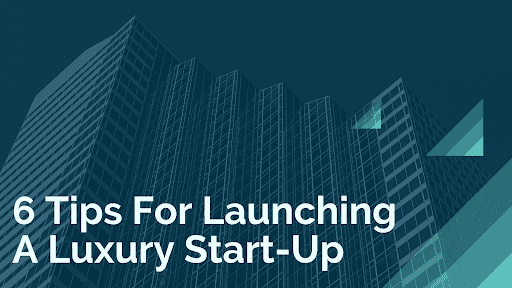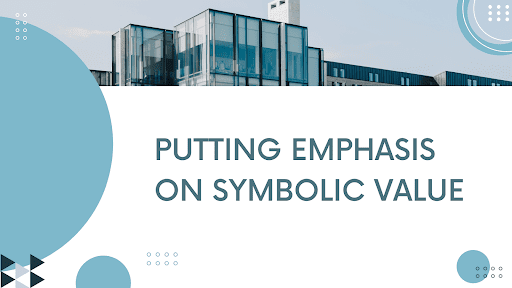6 Tips For Launching A Luxury Start-Up
Can you imagine receiving elegance, comfort, and perfection all in a package customized just for you? Living in luxury and comfort is an increasingly important goal, especially since luxury is only accessible to a few.
Possessing luxury goods is a status symbol that’s highly sought after. Whether it be an expensive bottle of wine, jewelry, or bags, people reach for them to acquire a luxury experience.
However, an increased interest in luxury equates to more significant challenges that industry players face. Regardless, the question is, how can you still successfully launch a luxury start-up? Keep on reading to find out.
Contents
Pointers for Launching a Luxury Start-Up Brand
Identify Your Niche
For your branding to be effective, you need to be diligent in choosing a lucrative section of the industry to target. The concept of luxury goods is built on the premise of being a symbol of high value to a selected few of high status. This is why the first step is to choose your niche and create products that consumers will highly value, such as luxury watches.
Because of the focus on its symbolic value, your consumers choose it for either its brand experience or the exclusive offerings. Its availability and exclusivity is also a factor that makes it luxurious. However, there are many luxury items, so you must choose your niche when you start.
For example, Gucci, as a brand, is known all over the world for its leather goods, fashion, and jewelry. It started by producing luxury travel goods. Then, it expanded into fashion and jewelry once its brand had been established.
Know The Market Shifts And Risks
The definition of luxury may not change per se but objects classified as luxurious might. For example, cars may have been a luxury in the past, but now, almost everyone has them. However, it’s not the case for all cars. A Tesla, for example, can be considered a luxury as it’s not accessible to the majority.
The same goes for the jewelry industry. Decades ago, a diamond wedding ring was only accessible to those who can splurge. Diamond earrings or necklaces are also considered luxurious because of their scarcity. Today, many people have such pieces in their jewelry collections. They can even buy much more accessible man-made diamond earrings.
How the market shifted also contributed to how the shine of natural diamonds diminished. People are becoming more aware. As popularly seen in the movie Blood Diamonds, the working condition in diamond mines is awful. Not to mention how these mines destroy the environment and emit harmful gasses to the ozone layer.
The ethical issues surrounding diamonds have paved the way for loose lab-grown diamonds to flourish. The industry ensures no miners are exploited, and the environment isn’t as heavily damaged. Its green background also makes it a desirable product for younger generations. Thus making it a formidable competitor in the industry.
As a start-up, it is essential to keep these issues in mind since consumers tend not to go for brands involved in them. Aside from unfair labor and environmental damages, issues related to animal testing and abuse are note-worthy.
Determine Your Position By Differentiation
When strategizing, global brands follow a cost leadership strategy or a differentiation strategy. However, for luxury brands, the differentiation strategy is most optimal. An aggressive approach is highly recommended to stand out in the industry.
Luxury brands are characterized by customer loyalty, a critical feature in defining their identity. This also portrays associations with powerful and central consumers within the market. This further emphasizes the need for differentiation and symbolic value.
Putting Emphasis on Symbolic Value
Brands usually offer consumers two types of value: functional or symbolic. Functional value comes from the potential uses of your brand. It highlights what customers can expect from your product regarding quality and reliability.
Meanwhile, symbolic value comes from the brand’s social standing. It’s viewed as an elite product that consumers aspire to have. As such, symbolic value comes from the endorsement and validation of select customers. This is why marketing strategies are essential for emphasizing symbolic importance.
Luxury brands create a sense of social standing for their consumers. They don’t buy the product itself but its social significance. For example, diamond studs from a brand with prominent customers give the product symbolic value. Other consumers then desire that value.
Making Them Perceive Exclusivity
Products can be viewed through two lenses. Those are what you know and what others perceive. Imagine yourself as a magician. Knowing your tricks doesn’t make the magic impressive. However, the audience perceives the trick the way you want it to look.
The same can be applied to luxury brands. By having your consumers see the products as exclusive, it raises the value immensely. These perceptions of exclusivity come in the form of price, limited geography, and limited supply.
These barriers create a sense of demand for the brand and give your patrons a sense of special status.
Creating this exclusivity is also a form of backup plan. If ever the brand faces an extreme shock, like a recession or competition, the brand will sustain its position. Because of this, perceived exclusivity is a vital part of the strategies devised for creating a luxury brand.
For example, your diamond rings and jewelry were seen in the showrooms of Prada, Gucci, and Louis Vuitton. Their symbolic value and exclusivity will rise exponentially if marketed as a limited product.
Delivering the Promised Quality
It’s always a big challenge for any brand to be consistent in delivering what their brand promises. To be a successful brand, you must create a supportive organization and operational structure.
This will make sure your strategies are implemented in the delivery of your promise. You need to consistently deliver the symbolic value of your brand in every nook and cranny of it.
Conclusion
Building a luxury brand amidst many longstanding ones right now may be daunting. However, having a clear business plan for choosing your niche and symbolic value will bring out the vast potential of your brand.
You also need to plan out how you’ll be different from your competitors. Differentiation paired with exclusivity and symbolic value will make your brand highly desirable. You can also take it up a notch by collaborating with other luxury brands.
By having your product associated with big names like Gucci or Prada, your brand will catch the attention of elite consumers. However, all of these approaches require proper strategizing and planning to carry out.


